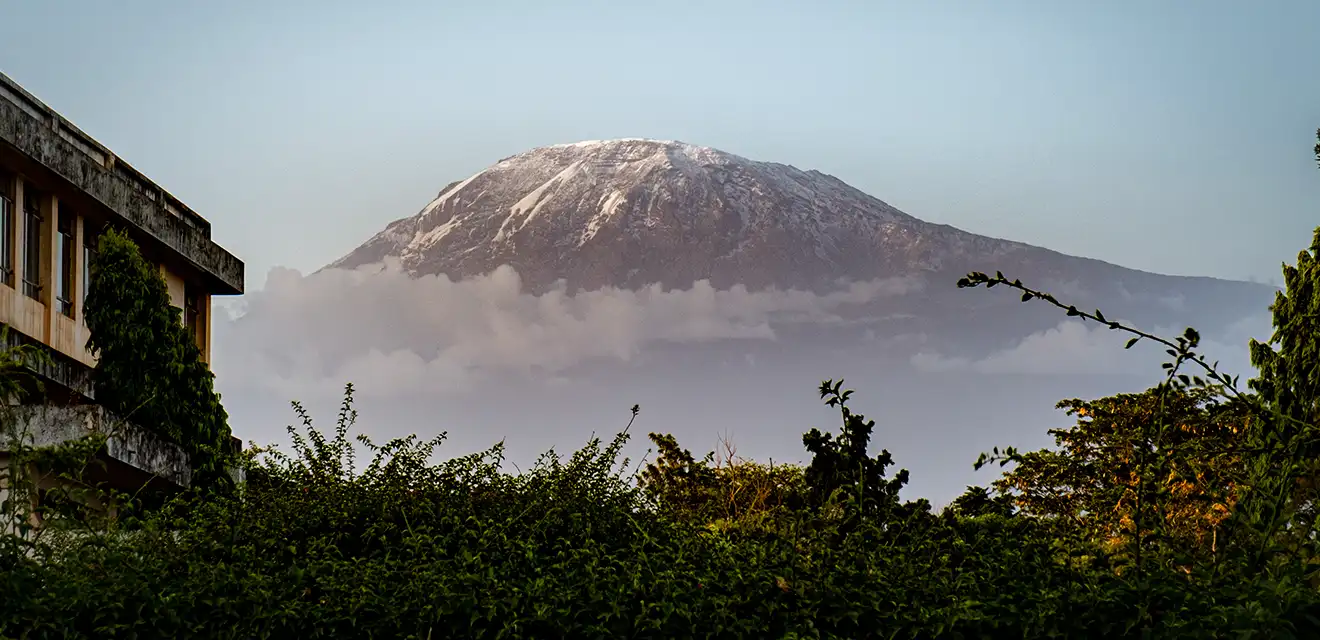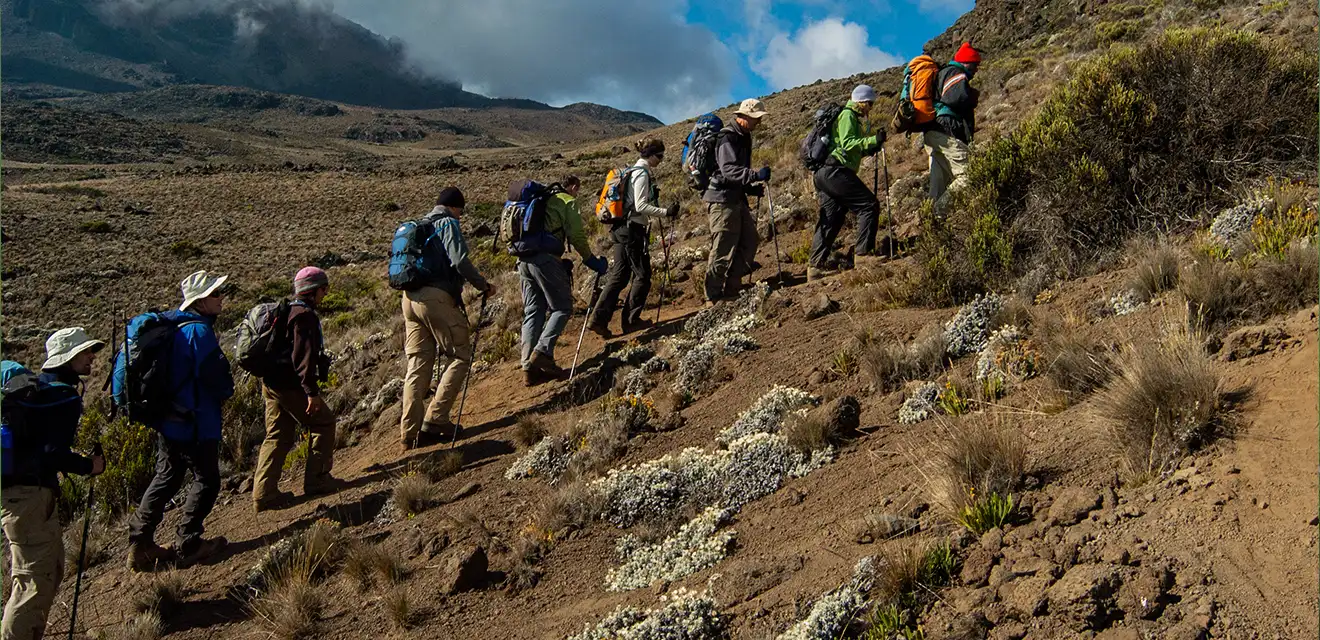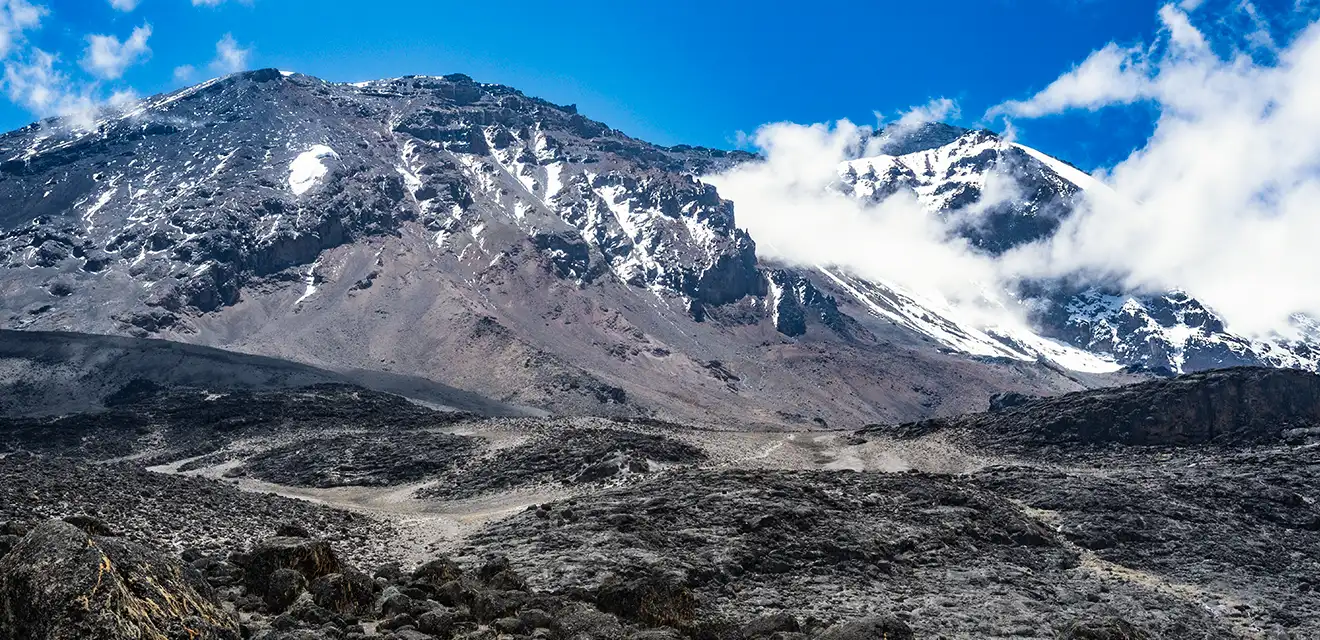7 Days - Lemosho Route Trekk
7 Days 6 Night
About
The Lemosho Route is one of the most scenic and popular routes to trek Mount Kilimanjaro, offering trekkers an unparalleled experience of the mountain's diverse landscapes. Known for its excellent acclimatization profile and relatively low traffic compared to some other routes, it is a favorite among climbers seeking a balance of adventure and success.
The route traverses the Shira Plateau, a stunning expanse of high-altitude grasslands. From there, it offers views of Kilimanjaro's glaciers, volcanic formations, and dramatic ridges, including the iconic Barranco Wall, which provides an exhilarating scramble with rewarding views.
Lemosho is renowned for its gradual ascent, which allows for better acclimatization. Trekkers follow the "climb high, sleep low" principle, visiting features like the Lava Tower (4,630m) for altitude adaptation before descending to camp.
Included
- Private, waterproof four-season sleeping tents
- Professional and experienced mountain guides
- Airport transfers – Transport from and to the airport
- All meals on the mountain – Meals provided during the climb
- All Entry fees, Park fees, Camping fees, Government Taxes
- Rescue Fees
- Guide, porter, and cook salaries
- Clean, purified drinking water
- Oximeter, Emergency Oxygen & Medical Kit
- Accommodation in Arusha
- Portable toilet
Exclude
- Personal expenses
- Anything else that isn't mentioned on Inclusions
- International and Domestic Flights Tickets
- Travel Insurance
- Tips or gratitude
- Visa Fees
- Alcohol and Soft Drinks
Trekking Plan
The trek begins at an altitude of about 2,100 meters (6,890 feet). As you start your journey through lush montane forest, you'll notice the air is relatively dense with oxygen. This initial segment helps your body adjust to the increase in altitude gradually. Diner overnight at Big Tree camp
On this day, you ascend to approximately 3,500 meters (11,480 feet) at Shira 1 Camp. The transition from the forest zone to the moorland zone is significant. As you climb higher, the air pressure and oxygen levels decrease, making it essential to take your time and hydrate well to avoid altitude sickness. Dinner and Overnight at Shira 1 Camp.
The trek to Shira 2 Camp involves reaching an altitude of around 3,850 meters (12,630 feet). This stage involves a moderate climb, giving you a good view of the expansive Shira Plateau. The lower oxygen levels might start to be more noticeable, so maintaining a steady pace is important. Dinner and Overnight at Shira 2 Camp.
This day involves a significant altitude gain, reaching up to 4,600 meters (15,090 feet) at Lava Tower before descending to Barranco Camp at around 3,950 meters (12,960 feet). This is a critical acclimatization day; the climb to Lava Tower helps your body adjust to the higher altitude, while the descent to Barranco Camp aids in better acclimatization and prepares you for the summit attempt. Dinner and Overnight at Barranco Camp.
You ascend from Barranco Camp to Karanga Camp, reaching an altitude of about 4,000 meters (13,120 feet). This day involves climbing over the Barranco Wall, which is a notable challenge. The altitude starts to feel more demanding, but the relatively short distance helps in acclimatizing further. Dinner and Overnight at Karanga Camp.
From Karanga Camp, you'll climb to Barafu Camp at about 4,600 meters (15,090 feet). Barafu Camp is the base for the final ascent to the summit. The higher altitude at this camp can cause noticeable symptoms of altitude sickness, so it's crucial to rest and hydrate well. Dinner and Overnight at Barafu camp.
The final push to the summit involves a dramatic climb to Uhuru Peak at 5,895 meters (19,341 feet). The altitude at the summit is very high, and the oxygen levels are much lower, making the climb challenging. After reaching the peak, you'll descend to Mweka Camp at approximately 3,100 meters (10,170 feet). The descent helps your body recover from the effects of high altitude, and the reduced altitude at Mweka Camp provides a more comfortable environment for resting.
- Throughout the trek, the gradual ascent of the Lemosho Route is designed to help climbers acclimate to increasing altitudes, which is essential for a successful summit and safe return. Proper acclimatization minimizes the risks of altitude sickness, making the Lemosho Route a favorable choice for many climbers.



